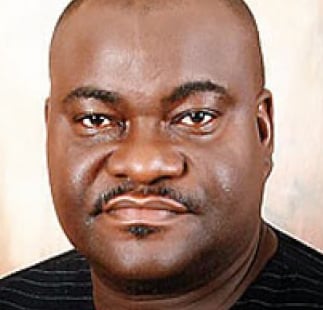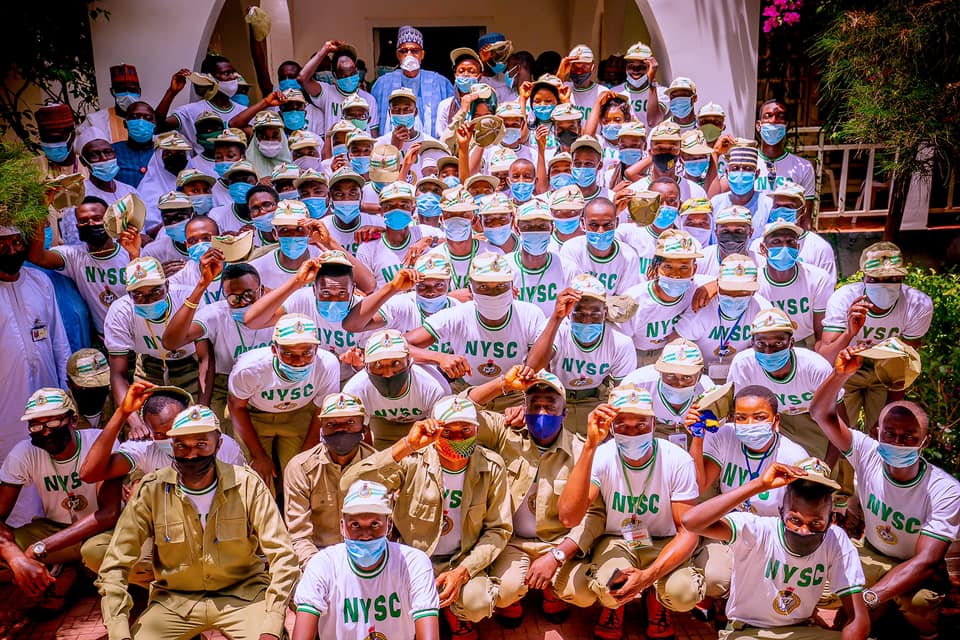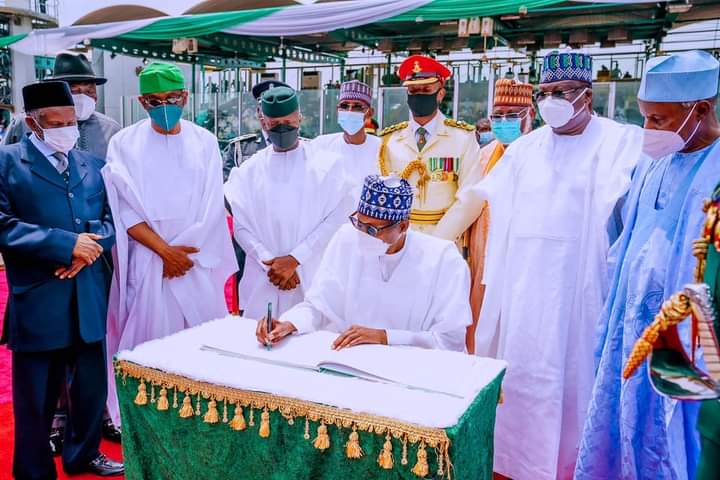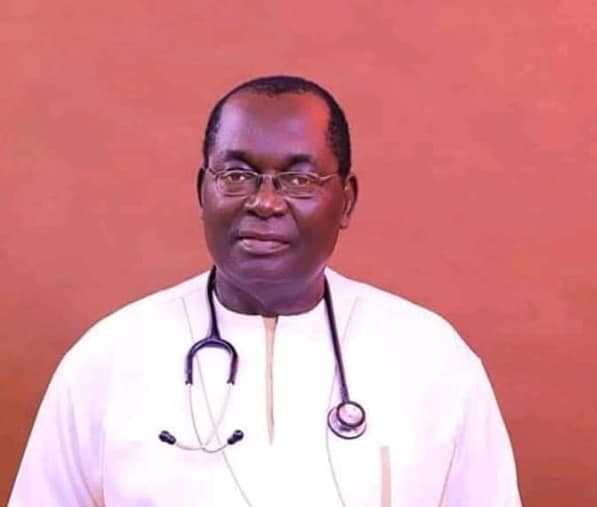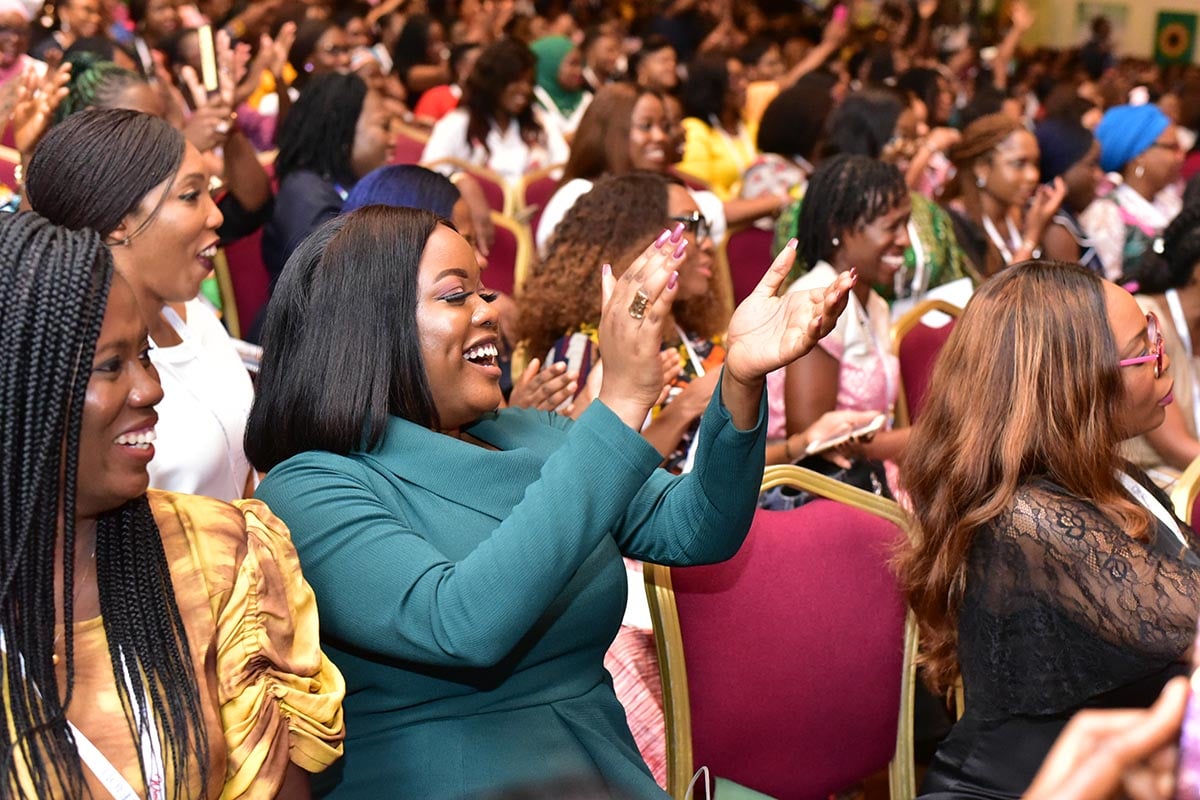Muhammadu Buhari, as a serving Major General, was Head of State the year I was mobilised for the mandatory one year National Youth Service Corps, (NYSC). His administration was not popular with us as students because it halted the subsidised “cafeteria” feeding system in the universities, upon its assumption of office, January 1, 1984. Buhari and his military colleagues overthrew the democratically elected administration of Shehu Usman Shagari which was inaugurated for a second term October 1, 1983. Under the Shagari dispensation, a 50 kobo meal ticket guaranteed you a balanced and sumptuous meal. Sundays were special, because our lunch of jollof rice, came with marinated chicken and ice cream. You could jolly well host a friend from elsewhere, in the school cafeteria, as validation of the quality of our meals. The meal ticket was currency, it was legal tender within the local economy of the school campus. You could help yourself to bottles of lager or supplies from accredited vendors within the premises of the university. Buhari’s removal of subsidies on feeding in tertiary institutions, birthed the culture of freestyle cooking by students in halls of residence, irrespective of the attendant risks.
I remember just like yesterday, when my classmates and I, craned our necks as we checked our names and states of posting, on the notice boards of our various faculties and departments, at the mini campus of the University of Ilorin, (Unilorin). It was a different world in our time, bereft of the fingertip conveniences of contemporary mobile telephony. We subsequently assembled at the “Administrative Block” of the university, where our letters of posting were handed out to us. Professor Afolabi Toye, was Vice Chancellor, and Mr. Olu Daramola, Registrar of the university.
It was an admixture of joy and reservation when I read through my letter. I was posted to the Old Imo State, parts of which constitute present day Abia State. As a lover of travel and adventure, this for me was an opportunity to expand on my knowledge of the geography of my country, Nigeria. I had already gained some “mileage” as it were, getting to know various parts of the country, before this time. I had traversed the Old North Central State (subsequently renamed Kaduna State); the former Midwestern State (later broken into Edo, Delta and parts of Bayelsa) and Kwara State. I had visited Lagos on several occasions and the original Oyo State (later bifurcated into Oyo and Osun States). Extracurricular activities in the university, had taken me to the former Plateau State (now Plateau and Nasarawa), as well as the primordial Anambra and Rivers States. Many of these opportunities, by the way, were made possible by my parents who had always believed that travelling was a most essential aspect of education. Any experience which will improve my knowledge of Nigeria therefore, was most welcome.
My reservations, however, stemmed largely from the unfair and misleading stereotyping of the east, from rumours and fallacies that had been disseminated about that part of Nigeria. There were stories to the effect that Igboland was the epicentre of cannibalism, ritual and occultism. The story was woven around the civil war experiences of the Igbos, between 1967 and 1970, where drought and hunger, drove the people of the region, into carnivorous contemplations. This culture they said, had subsisted, even long after the end of the fratricide. “Ah, they eat human beings there o. You have to be careful,” people will whisper into your ears.
Advertisement
You had little choice in influencing your place of posting, in our time, anyway. It was the old, functional Nigeria, where things, relatively, worked. The NYSC was established May 22, 1973, by the administration of Nigeria’s civil war time military leader, General Yakubu Gowon. It was set up to promote reconciliation, reconstruction and rebuilding of the country after the civil war. It aims to encourage and develop common ties amongst Nigerian youths, to promote national unity and cohesion. You had absolutely no input into where you were posted, in that extant Nigeria. “Inbreeding,” in a sense, a situation where youths were deployed to areas of sociocultural contiguity to theirs, was not encouraged.
The founding objectives of the NYSC are similar to the concept of the Federal Government Colleges (FGCs), which premiered in Sokoto in 1966, as experimental “Inter Regional Secondary Schools.” Two others were established in Okposi in present day Ebonyi State and Warri, Delta State, respectively. The concept was given further ventilation by the Gowon administration, on account of success of the pioneering trial run. The project was aimed at bringing Nigerian youths from all parts of the country together, to study together in the various colleges for a five year period culminating in writing the West African School Certificate Examination (WASCE). The FGCs also prepared students for the Higher School Certificate Examination, (HSC), for those desirous of enrolling in universities as “direct entry” candidates. The youngsters get to know one another, and to interact within the period of their student-ship. This was also to fast track and facilitate the post-civil war healing and reintegration process.
The FGC project ensured that Donald Duke, a former governor of Cross River State, attended FGC Sokoto in the north west, far from his home in the south south. Liyel Imoke who succeeded Duke as governor, attended FGC, Enugu, alongside Ahmed Makarfi, a former Kaduna State governor. Abba Risqua Mohammed, son of Murtala Ramat Mohammed, an army General and Nigeria’s military leader who succeeded Gowon July 1975 and was assassinated February 1976, schooled at FGC, Ilorin. Such was the success of the concept of the unification of young Nigerians across cultures, creeds and tongues, courtesy of the model. As at 2018, there were 104 federal government colleges in the country, an average of three per state.
Advertisement
An older cousin of mine, Yomi Babaniyi, underwent his NYSC in the erstwhile Cross River State, in Ogoja, to be specific, years before me. He debunked the misrepresentations of man-hunting and similar fables, urging me to report promptly in the NYSC camp. A few classmates in the university too, notably married women, were posted to their home states or the states of abode of their spouses. Mrs Gloria Sibigam, was our classmate all through our time in the university, leading to our completion of the bachelor’s degree programme. Her husband worked in the erstwhile “Imo State Broadcasting Corporation,” (IBC), Owerri. She had been something of a sister to me in school and was glad I was posted to her home state, where I would eventually meet her family.
And so, my cousin, Kayode Elebiyo and my good friend Tivlumun Nyitse, left my father’s home in Ilorin for *Oja-Oba* motor park, this morning, that year. Kayode and Tivlumun were posted to the former Cross River State, while I was deployed to Imo. We all boarded an Onitsha-bound taxi, the commercial hub of the south east, being the transit centre to other destinations in our contemporary south east and south south zones. Roads were not only in better shape, they were of course safer. And at no point did we have any untoward experiences on the highway, no robbers, no kidnappers, no bandits. We alighted in Onitsha in the evening and immediately connected to our respective destinations. Kayode and Tivlumun continued to Calabar, while I headed to Owerri. People answered your questions and inquires and guided you appropriately. We felt very much at home in what was a totally new environment, another world, a different part of Nigeria. We just soaked in the experience.
I was one of the early arrivals in the NYSC orientation camp domiciled at the Alvan Ikoku College of Education, Owerri. I was well received by NYSC officials and preliminary interactions began with fellow members of the NYSC from different states and institutions. I remember I shared a room on my very first night in camp, with Samuel Sonayon Whenu, from Lagos State. Whenu is *Egun* from Badagry, I am *Yagba* from the erstwhile Oyi local government area, in former Kwara State. We soon welcomed two other corps members to our room, one from Benue and the other from Anambra State. We already had a mini-Nigeria in our room!
It was reassuring seeing old friends and schoolmates from Unilorin in the camp, notably Amaechi Elumelu (now a commissioner of police), Kunle Ralph Ibinuhi (who reportedly served in the Nigerian Correctional Service (NCS), and so on. Between the parade ground, the dining hall, the civic instruction hall, information unit, drama section, the buttery, among other places in the camp, however, we had already begun to cultivate new friends. In total, there were 1004 (one thousand and four) youth corps members in our service year. It was a significant number which reminded us of the “1004 flats” in Victoria Island, Lagos.
Advertisement
I have an ear for languages having picked up bits of Hausa growing up in Kaduna, and some Bini during the years I attended primary and secondary schools in the capital of the former Midwestern State. The incumbent Oba of Benin, His Royal Majesty, Omo N’Oba N’Edo N’Ogidigan Oba Ewuare II, by the way, attended my secondary school, Immaculate Conception College (ICC), Benin City, years before my generation of students of the same school. I was enthusiastic about learning Igbo, so as many new friends I made from the south east, I pleaded with them to teach me the rudiments which could enable me engage a potential girlfriend and possibly a wife!
Our formal reception into Imo State on the official inauguration of our service year was witnessed by Abdulkareem Adisa, a Colonel at the time who was Commander, Field Artillery Brigade (FAB), Obinze, near Owerri. He stood in for the substantive military governor of Imo State, Ike Omar Sanda Nwachukwu, a Brigadier General. Nwachukwu who has subsequently been Minister and Senator of the federal republic, respectively. Upon completion of national service a year later, our valedictory parade was reviewed by Alison Madueke, a Naval Commodore, who would later become a Chief of Naval Staff, (CNS). Colonel Edet Akpan was Director-General of the NYSC at the time.
We were on the parade ground going through our regular drills, August 27, 1985, when we heard the announcement of the ouster of Muhammadu Buhari and his deputy, Babatunde Idiagbon, from office. Buhari was succeeded by Ibrahim Badamasi Babangida, who was Buhari’s Chief of Army Staff (COAS), and who assumed the title of President after his coup. The office of “Chief of Staff Supreme Headquarters,” (CSSH), the title of the Number Two official in a military milieu had been carried forward from the Gowon era and had been lately occupied by Idiagbon. It was reconfigured under the new regime as “Chief of General Staff” (CGS). Ebitu Ukiwe, a Navy Commodore, who had earlier served as military governor of Lagos State, was appointed to the position.
Tony Adejoh Olofu (a commissioner of police); Sunday Odey Adekwu (an engineer who subsequently worked in the maritime industry) and Samson Udobong Udokpan (a political scientist), were some of my new friends, courtesy of the NYSC. Matthew Aligbe (who went on to become Registrar of the Federal Polytechnic, Nekede, Owerri); Dede Mabiaku (afrobeat musician and protege of Fela Anikulapo-Kuti) and Armstrong Idachaba (former acting director-general of the Nigerian Broadcasting Commission (NBC), were some of my new acquaintances too. Segun Oluwasemire (an estate valuer) and Charles Omatola (a former senior official with the Petroleum Technology Development Agency (PTDA), were friends I also made from the Owerri experience. Obiageli Ezekwesili (former education minister), Sunny Echono (incumbent permanent secretary of the education ministry), and Joseph Okoro (a director in the Nigerian Intelligence Agency (NIA), also served with us in Owerri.
Advertisement
I got posted to what was then “The Polytechnic,” Nekede, Owerri, which has since been rechristened a federal polytechnic. I was engaged to teach Use of English. We were 30 of us youth corps members in the institution, which relied very heavily on NYSC personnel to augment staff shortages, evidently from paucity of resources to engage permanent staff. Accommodation was provided for us at “Aladinma Housing Estate, an upscale residential area then, and we shuttled to Nekede either using the staff bus or making our way by public transport. Halfway into our one-year stint in national service, our place of abode was changed to “Wetheral Road” in city centre, a walking distance to the popular “Douglas Market.”
Our NYSC gear conferred tremendous respectability on us in our time. We were known as “children of the government.” It opened doors and granted us privileges. Olofu never ceases to tell our mutual friends that his first trip to a stadium to watch a live match, was in Owerri, at my instance! The Owerri stadium was the home ground of “Spartan Football Club” later rechristened “Iwuanyanwu Nationale.” We got to watch teams like “Abiola Babes” of Abeokuta; “Rangers Football Club” of Enugu; “IICC Shooting Stars” of Ibadan;” “New Nigerian Bank” of Benin and many others. And it was always a worthwhile experience, savouring the carnival air of the stadium on match days, where football fans, clutched and listened to their radio sets, for commentaries of the games being played right before their very eyes!
Advertisement
When we were not watching football, we visited friends serving in other localities. Oguta was my favourite destination. The famous musician “Charly Boy Oputa” had a well equipped recording studio there, where Mabiaku cut his teeth as an artist. Ibinuhi, my schoolmate, also served there and would usually be my host. The second attraction I had for Oguta, stemmed from the fact that we could always have fun, inhaling the refreshing river breeze by cruising on the ferry from Oguta to Awo-Omamma on the banks of River Njaba, which operated at regular intervals. The ferry transported people, goods and automobiles across the river and we just hopped on it. If you were travelling on bigger coaches which we commonly call “luxurious buses” across long distances, any NYSC insignia on you: face cap, printed vest or the khaki gear, entitled you to discounts. The same applied to air travel on the single airline operating in the nation’s air space at the time, the government owned, “Nigeria Airways.”
When we wanted to humour ourselves especially immediately after collecting our monthly allowances, some of us went over to “Concorde Hotel” which was one of the biggest names in the hospitality industry in the south east at the time to have a drink. Not wanting to travel all the way to Ilorin to see my family during Christmas December 1985, I simply crossed over to Port Harcourt where my friend and classmate, Blessing Wikina lived. He came home for the yuletide from Akure where he was undergoing the NYSC, so I was in good company. We toured his hometown, Kono, at the heart of Ogoniland and attended events in Wiyakara and Isiokpo among others.
Advertisement
On designated days of the week, we participated in the “Community Development Service,” (CDS), one of the strands of our brief as corps members, to give back to society, as part of corporate social responsibility, (CSR). Our own CDS was to develop a cassava farm which we nurtured from the planting stage. Our farm site was at Emekuku, a sleepy, rural community on the outskirts of the Imo State capital. After tending our rows of cassava on CDS days, we dispersed into the community, some of us dabbling into local delicacies like *ugba* and *nkwobi* and of course the liquid accompaniment, *tombo.* Such was the depth of our acculturation into the fabric of our host states and communities. Our monthly allowance was N200. You heard me, two hundred naira only. The value of our currency was much, much stronger then, at parity or even more valuable than the dollar.
*In all of these, there was no reported incident, where a youth corps member was maltreated in any form, robbed, assaulted or abducted, during our service year.*
Advertisement
It was usually an emotional scene after the passing out parade of the NYSC, when people get their belongings together, shake hands with one another, embrace themselves and head for the motor park. Telephone coverage by land line which was the only available means of telecommunications, was not anywhere near what we have today, in mobile telephony. Departing friends therefore, usually exchanged the physical addresses of their destinations so they could exchange letters by post. Such was the depth of nostalgia we felt, having to miss friendships we had built over 12 calendar months, upon completing our one year NYSC programme.
Times have changed and the dynamics of the NYSC have evolved as well. The security situation in parts of the country, notably in the north east, north west and south east, has made parents very sceptical about having their children and wards, posted to flashpoints and frontlines of potential violence and bloodletting. Insurgency in the Borno/Yobe sub-zone; banditry and kidnapping in the Niger/Kaduna/Kano belt and the perennial volatility in the Anambra/Imo parts of the south south east have made people very circumspect.
Over the last decade, it has become fashionable for the Independent National Electoral Commission (INEC), working with the leadership of the NYSC, to deploy members of the youth corps, on electoral duties. They are a crop of educated youngsters, who possess a minimum of first university degrees or higher national diplomas from polytechnics. They can easily be trained within a very short time to grapple with electoral manuals and to add value to the democratic process. It was reported in 2019, for instance, that 300,000 corps members were deployed for election duties nationwide, from the levels of polling units, through wards, through local government collation centres and so on.
Sadly, some of these leaders of our envisaged future, have been endangered in various ways. Some have been killed or maimed in the line of electoral duty, such that during the presidential election of March 2011, for instance, 10 innocent corps members lost their lives in the north of the country, specifically in Bauchi State. A grieving President Goodluck Jonathan at the time, invited the families of the young men and women, to the State House, May 10, 2011, to assuage their grief. While commiserating with them, he approved automatic employment for one graduate each, from the families of the slain young Nigerians. He equally approved a palliative of N5 million to each family, while announcing the constitution of an inquiry into the tragic incident. The 2011 election also claimed the eyesight of Daniel Oluwatobi, who was involved in an accident while on election duties in Yobe State. It took five years before INEC compensated him with a letter of appointment.
The 2019 elections, also reportedly claimed the lives of 35 ad hoc electoral officers, many of whom were youth corps members. Ibrahim Okanlawon for instance, died in a boat mishap in Ondo State, March 10, 2019, while returning from a riverine part of the state, bearing election results. Ibisaki Amachree was killed February 23, 2019, in Rivers State, during the presidential election. On February 25, 2019, Benita Sunday was among the youth corps members who were injured when gunmen attacked a collation centre in Obosi, Anambra State, during the presidential and national assembly elections. Last July, five prospective youth corps members were involved in a ghastly motor accident, while commuting between Akwa Ibom/Imo States, and Katsina State where they had been deployed for the 12 month exercise. Twelve others sustained various degrees of injuries in the tragic incident.
In recent years young Nigerians mobilised for the NYSC, have been victims of road accidents, ailments arising from poor sanitary conditions in orientation camps, kidnapping, robbery, ritualists, rape and political brigandage, among other risks. The erstwhile regard and esteem with which young Nigerians participating in national youth service scheme were viewed, has been watered down, if not obliterated, over the years. This has called to question, the continuing desirability of the scheme which in several instances has become a source of regret and lachrymose for many families whose children and wards have become casualties of a myriad of unanticipated risks, in the course of the service year.
The recently released NYSC handbook which admonishes corps members on security awareness, has indeed become a source of controversy in recent days and weeks. Titled “Security Awareness and Education Handbook for Corps Members and Staff,” the handbook advises participants in the scheme against unauthorised trips. A section of the manual headlined “Advisory Tips to Minimise Being Victims of Kidnappers or Hostage Takers,” enjoins corps members to avoid isolated routes. It warns about alertness on forested stretches of highways, while also sounding the alarm about unsafe times of the day for travel.
The dialectical section of the Advisory is that which counsels corps members about plying high risk roads like: Abuja to Kaduna; Abuja to Okene via Lokoja and the Abuja to Port Harcourt route. The NYSC advises that “When travelling on these high risk roads, alert your family members, friends and colleagues in order to have someone on hand to pay off the ransom that could be demanded.” And this is the crux of the matter. Efforts have been made to make light of that warning, but this has not watered down the import of the counsel.
From all indications, it would seem that NYSC has thrown up its hands in despair, about the security of serving and prospective youth corps members, who will have reason to commute on the routes highlighted in the advisory among others, in the course of their service year. It would seem, from the tone of the travel guide, that intra-country abductions are not about to end soon, despite government’s assurances to the contrary. And if it has become such a high risk venture to participate in the youth corps scheme, shouldn’t government have a rethink about the programme?
There have been suggestions about the need to tinker with the shape and form of the scheme. It has been broached for instance, that youth corps members should be deployed specifically to their indigenous geopolitical zones. In reality, however, that will do little to impact the scheme, positively. Prospective corps members deployed from Kogi to Niger State and vice versa in the north central zone, for instance, will still have to ply the Lokoja to Abuja highway to get to their destination. There are also those who profer that the scheme should be scrapped outrightly.
The primordial planks for the establishment of the programme about five decades ago, remain very germane. Those noble considerations are even more pertinent today with the quantum fissures, fissions and lacerations which contemporary politics and politicking have individually and collectively, inflicted on unity, cohesiveness and national integration, particularly in the past six years. There is unanimity about the fact that we have never been as fractious and suspicious of one another along geocultural and ethno-religious lines, post-civil war, as we are today, as a country. As witness to the infinite possibilities of the NYSC in sociocultural harmonisation, bonding and unification, one would rather a continuation and sustenance of the scheme, which has inbuilt capital in the project of national understanding, growth and development.
This, however, will be subject to the deployment of the following two years before the golden jubilee anniversary of the creation of the scheme, to a radical, rigorous rethink and revamp of the concept, with the full participation and contribution of all relevant stakeholders. This must include protection and insurance guarantees for young Nigerians who are actually conscripted, in the subtler language of “mobilization,” for the NYSC. This is the challenge which Shuaibu Ibrahim, a Brigadier General and Director-General of the NYSC and his colleagues in the leadership of the organisation, must contend with, moving forward. Ibrahim brandishes the curriculum vitae of a scholar, with a doctorate degree in History, as one of the epaulettes on his shoulders. He must speedily commission an inquest into the origins, past and present trajectory of the NYSC, and project into its sustainability.
Olusunle (PhD), poet, journalist and scholar, is a member of the Association of Communication Scholars and Practitioners of Nigeria (ACSPN).
Views expressed by contributors are strictly personal and not of TheCable.
Add a comment
